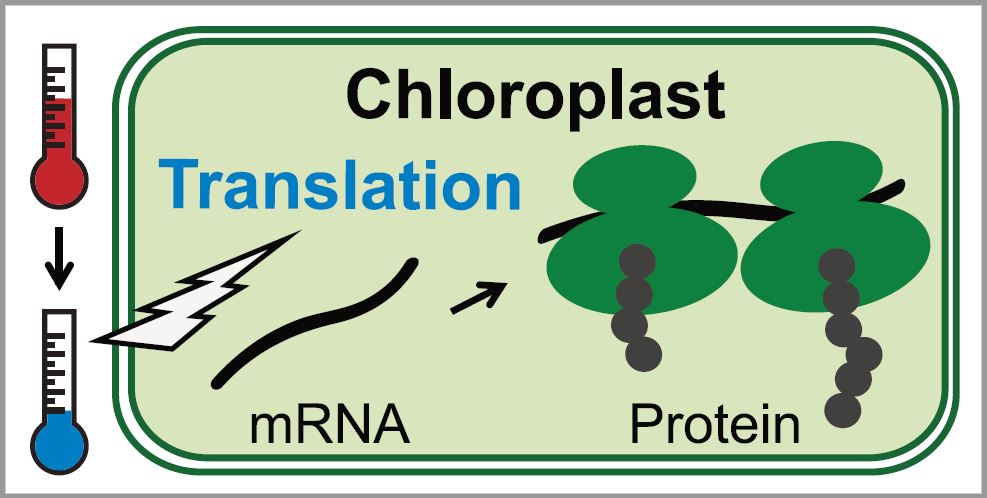Nonessential genes are nevertheless good for something: Cold acclimation and photosynthesis
By Yang Gao and Reimo Zoschke, Max Planck Institute of Molecular Plant Physiology, Potsdam-Golm, Germany
Background: Plants have to cope with ever-changing environmental conditions. Climate change causes sudden cold periods more frequently, especially in the spring. Rapidly dropping temperatures trigger several acclimation responses in plants, including changes in gene expression. Plants contain genomes within the nucleus, but also in mitochondria and chloroplasts (organelles of endosymbiotic origin). While cold-induced alterations in nuclear gene expression have been studied in detail and functionally linked to acclimation responses, close to nothing is known about the contribution of chloroplast genes to cold acclimation.
Questions: Employing genome-wide approaches, we asked how chloroplast transcription and translation are altered during chilling and which chloroplast genes are involved in plant cold acclimation.
Findings: Within two days of chilling, chloroplast gene expression in the model plant tobacco is mainly altered at the level of translation, while transcription does not substantially respond to cold. We identified 13 chloroplast genes whose translation is either induced or repressed by cold and mainly encode nonessential subunits of the photosynthesis machinery. These nonessential genes are dispensable for growth at ambient temperature. For one such gene, petL, encoding a small, nonessential subunit of the cytochrome b6f complex (involved in the electron transport reactions of photosynthesis), we show that its expression is crucially required for adequate cold acclimation of the light reactions of photosynthesis. Consequently, plants lacking petL display impaired photosynthesis and bleached leaves in the cold.

Next steps: We want to understand how petL and other cold-responsive chloroplast genes are regulated during cold acclimation: which factors control their cold-regulated translation and which RNA elements are involved in the molecular mechanisms of chloroplast cold regulation? Furthermore, we want to decipher how cold-responsive chloroplast genes do strengthen photosynthesis, chloroplasts and the whole plant during chilling. This knowledge will support efforts to create new crop plant varieties that can withstand adverse temperature conditions, including unexpected cold periods.
Reference:
Yang Gao, Wolfram Thiele, Omar Saleh, Federico Scossa, Fayezeh Arabi, Hongmou Zhang, Arun Sampathkumar, Kristina Kühn, Alisdair Fernie, Ralph Bock, Mark A. Schöttler, and Reimo Zoschke. (2022). Chloroplast translational regulation uncovers nonessential photosynthesis genes as key players in plant cold acclimation. https://doi.org/10.1093/plcell/koac056



